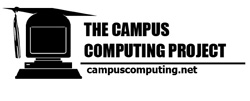The Higher Education Opportunity (HEO) Act of 2008 requires US universities and colleges to undertake measures to reduce piracy, and go after students who use filesharing networks to share copyrighted files. A recent study found that, per institution, between $350,000 and $500,000 a year is spent tackling the piracy problem.
 The methods universities use to reduce piracy on their networks have been scrutinized in our ‘Tackling College Piracy’ series. Most of them have been found to be technologically ineffective, working only at the psychological level. The main problem with the “technological approach” is that it’s impossible to distinguish authorized from unauthorized network traffic. Nonetheless, these anti-piracy efforts are quite expensive.
The methods universities use to reduce piracy on their networks have been scrutinized in our ‘Tackling College Piracy’ series. Most of them have been found to be technologically ineffective, working only at the psychological level. The main problem with the “technological approach” is that it’s impossible to distinguish authorized from unauthorized network traffic. Nonetheless, these anti-piracy efforts are quite expensive.
First of all, the amount of time spent dealing with allegations of infringement are huge, according to the study by the Campus Community Project. IT personnel alone spend a mean time of 750 hours at public universities, while private university IT personnel spend around 620 hours a year on this. The shorter time for private institutions generally comes about because of their smaller size, and so smaller search size, and less frequent notifications.
Overall, the costs that come with them are larger than most would expect. It was concluded that between $350,000 and $500,000 is spent annually per institution - directly and indirectly - dealing with copyright infringement notices. The quality of US education has already been questioned (most recently by US presidential candidate Barack Obama in the 3rd Presidential Debate), especially in contrast to the high cost of it. In this light, the costs incurred dealing with copyright infringements are nonsensical.
The study reports that 25% of public universities use a form of technological filtering, such as Copysense, to try and reduce infringements. As noted before, such measures are fairly inaccurate and rarely work. Less common are educational methods, which may be linked with p2p access, as at Missouri S&T. However, most universities and colleges simply disconnect pirating students from the network, and make them promise to never do it again when they want to get back on. Financial penalties are also given, but this is not yet commonplace. We will deal with this in an upcoming piece.
No comments:
Post a Comment